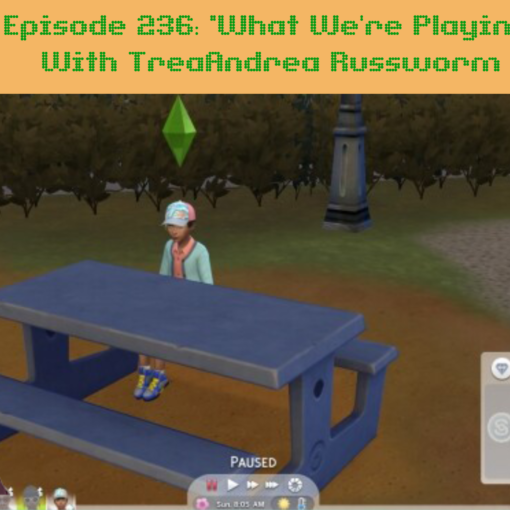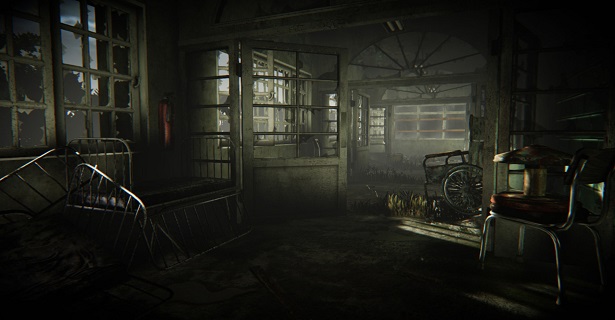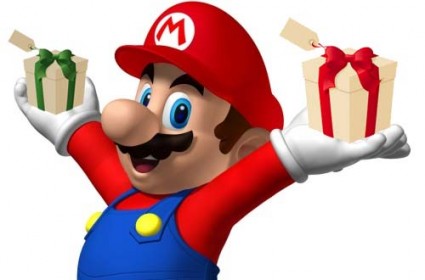One child grows up to be
Somebody that just loves to learn
And another child grows up to be
Somebody you’d just love to burn-“Family Affair,” Sly and the Family Stone (1971)
Family. It’s a big deal for me. I live and die for mine. I am a fierce protector, not only of my child and extended family, but also of the family that I have built around me. If you make it into that circle it means something. It means a lot. For this reason only the line “Family first,” even in the mouths of the villains in Luke Cage resonated with me, but ultimately any breach of that made them even more monstrous in my eyes.
This second post in my series on Black heroes and anti-heroes in Mafia III and Luke Cage is focused on families and what our heroes are willing to do for those families (biological and adopted). Please be aware that spoilers abound. Both Lincoln and Luke are men who have been alone in the world at some point. Lincoln was abandoned as a child and placed in an orphanage and was finally taken in by Sammy Robinson, the leader of the Black mob and owner of Sammy’s Club, after the orphanage closed it’s doors. Luke has no biological familial relationships,or so we think, he marries prison shrink Reva Connors after his attempted murder and subsequent escape from prison and the television series begins with him hibernating and healing (or laying in the cut) at Pop’s barber shop (who was kind of surrogate uncle to Connors) in the vein of Ralph Ellison’s Invisible Man (which makes it’s own cameo appearance in the very first episode).
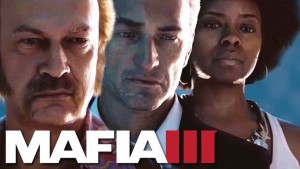 These spaces become home to these men. Sammy’s Club and Pop’s Barbershop not only bear the names of the father figures that own and run them, but are the spaces in which Lincoln and Luke come into their own as (anti)heroes. Sammy’s is the place where Lincoln grows from the son who receives direction and goes out into New Bordeaux to deal with the problems that his father finds himself facing. (And it is this problem solving that ultimately leads to the catalytic act that brings him into his own). After the murder of his family, Lincoln is driven not to revenge (or at least not solely), but rather to ambition. He wants to take control of the criminal enterprises within all of New Bordeaux. His goal is rebuild Sammy’s dynasty as something bigger and better and with the help of a series of now underbosses who have been slighted by the previous bosses and are now willing to come together to serve under Lincoln Clay, who promises to be not only more fair, but more socially aware than his predecessors.
These spaces become home to these men. Sammy’s Club and Pop’s Barbershop not only bear the names of the father figures that own and run them, but are the spaces in which Lincoln and Luke come into their own as (anti)heroes. Sammy’s is the place where Lincoln grows from the son who receives direction and goes out into New Bordeaux to deal with the problems that his father finds himself facing. (And it is this problem solving that ultimately leads to the catalytic act that brings him into his own). After the murder of his family, Lincoln is driven not to revenge (or at least not solely), but rather to ambition. He wants to take control of the criminal enterprises within all of New Bordeaux. His goal is rebuild Sammy’s dynasty as something bigger and better and with the help of a series of now underbosses who have been slighted by the previous bosses and are now willing to come together to serve under Lincoln Clay, who promises to be not only more fair, but more socially aware than his predecessors.
For Luke, it is only after the murder of Pop that Luke is driven to move “always forward” specifically to avenge the death of Pop and to maintain the barbershop as “Switzerland,” a neutral place where folks can come together to solve problems peacefully. It is only when an outlier (because even Cornell/Cottonmouth mourns the death of Pop because of their connection as children/young men) who does not acknowledge the neutrality of this safe zone that the entire structure of the world begins to disintegrate. And it becomes the job of Luke Cage to step up as the heir to the throne and restore order to chaos with the help of Bobby Fish, shop regular chess guru who steps in to run the barbershop day to day so that kids in the neighborhood have somewhere to go to avoid life on the streets. It is the socially responsible thing to do.
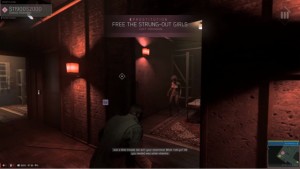 Social responsibility is a notion that runs as an undercurrent in both narratives. While Luke Cage shows that there is honor among thieves and that even dirty money should be used to rebuild Harlem for the people. Harlem is Black Mariah’s legacy just as New Bordeaux is Lincoln Clay’s. Lincoln is taking the city back from Sal Marcano so that Black women are no longer being strung out, imprisoned, and used as the Confederate underboss’s “thoroughbreds” (the narrative here is so rich when one considers the sexual history and politics of the region of the US that serves as the inspiration for New Bordeaux) and that Black women are no longer being used and abused by white men who fetishize them (there is great ambient discussion of this). Most importantly Lincoln is taking over as the new boss with the promise to Cassandra that he will do better than Sammy to uplift the community, that he will do more than just toss a couple boxes of food to the needy when the whim strikes. That he will provide regular support for the community that ultimately supports them. But even while Lincoln may feel that he is replacing a flawed father figure in Sammy, he has not come to the realization (at this point in my game) that he is yet another flawed patriarch. While he works to do away with the systemic racism within the crime syndicate in New Bordeaux and to restore cultural connections, he does not seem to be cognizant of the effect that his own criminal industry has on the community. There is no real recognition of the effect that even socially aware criminal endeavors have on the community at large. His power is growing, but it is myopic.
Social responsibility is a notion that runs as an undercurrent in both narratives. While Luke Cage shows that there is honor among thieves and that even dirty money should be used to rebuild Harlem for the people. Harlem is Black Mariah’s legacy just as New Bordeaux is Lincoln Clay’s. Lincoln is taking the city back from Sal Marcano so that Black women are no longer being strung out, imprisoned, and used as the Confederate underboss’s “thoroughbreds” (the narrative here is so rich when one considers the sexual history and politics of the region of the US that serves as the inspiration for New Bordeaux) and that Black women are no longer being used and abused by white men who fetishize them (there is great ambient discussion of this). Most importantly Lincoln is taking over as the new boss with the promise to Cassandra that he will do better than Sammy to uplift the community, that he will do more than just toss a couple boxes of food to the needy when the whim strikes. That he will provide regular support for the community that ultimately supports them. But even while Lincoln may feel that he is replacing a flawed father figure in Sammy, he has not come to the realization (at this point in my game) that he is yet another flawed patriarch. While he works to do away with the systemic racism within the crime syndicate in New Bordeaux and to restore cultural connections, he does not seem to be cognizant of the effect that his own criminal industry has on the community. There is no real recognition of the effect that even socially aware criminal endeavors have on the community at large. His power is growing, but it is myopic.
Power is confident, self-assuring, self-starting and self-stopping, self-warming and self-justifying. When you have it, you know it.
-Invisible Man, Ralph Ellison
This is the second in a series of posts about Luke Cage and Mafia III. In the next post I will focus on women and sex. Stay tuned!

